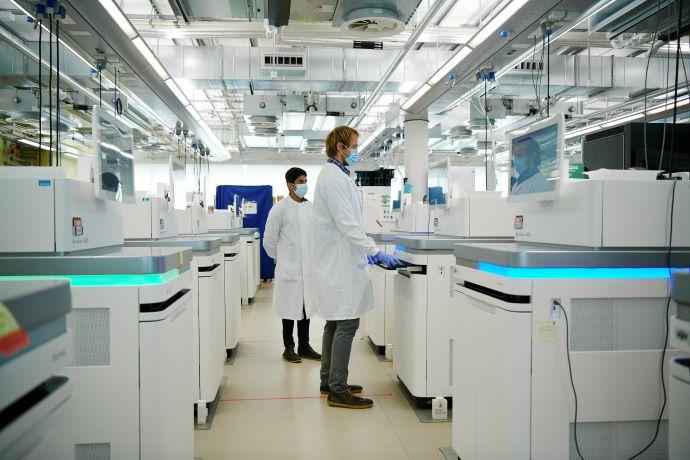Wellcome Sanger Institute launches a new global hub for genomic surveillance which will work with partners around the world to use genome sequencing to help tackle infectious diseases, including SARS-CoV-2 and malaria.
The Genomic Surveillance Unit (GSU) will work closely with its partners to help develop their genomic surveillance capabilities, enabling them to generate information about disease-causing microbes in circulation and their characteristics. This information has the potential to save lives, reduce infectious disease health burden through informed public health interventions, and contribute to global pandemic preparedness.
Genomic surveillance involves sequencing the genetic material of pathogenic microbes and their vectors so that evolutionary changes that affect transmission, disease severity and susceptibility to treatment can be observed. This makes it possible to monitor the ever-changing landscape of pathogen and vector populations in order to develop effective strategies for disease control and elimination.
The use of genomics for surveillance gained widespread visibility during the ongoing COVID-19 pandemic, where sequencing of SARS-CoV-2 viral genomes has become an invaluable tool to track the spread of the virus and emergence of new variants.
The mission of the GSU is to accelerate the generation of genomic data on a large scale. It will do this by working with partners to implement scientific pipelines, from sample collection through to the delivery of actionable data. In particular, the GSU will focus on strengthening capacity for the generation and sharing of genomic data, developing easy-to-use tools and methods, and creating accessible resources that provide actionable information for public health.
The Sanger Institute’s work with the malaria data-sharing network, MalariaGEN, its work on COVID-19 surveillance, and through the Sanger Parasites and Microbes Programme more broadly, means that it has extensive experience of building long-term, equitable collaborations and data sharing networks with partners worldwide. The experience and knowledge held collectively by the GSU and its partners will be used to implement systems for global genomic surveillance that can track the spread and evolution of pathogens and monitor for new disease outbreaks.
“The Genomic Surveillance Unit is a progressive step for the Sanger Institute, enabling us to maintain our contribution to combating infectious disease through genomic surveillance activities serving public health partners around the world. It is critical that the lessons learned and extraordinary experience acquired during the COVID-19 pandemic are not lost, but rather used to drive forward the development of effective genomic surveillance across the globe.”
Professor Sir Mike Stratton Director of the Wellcome Sanger Institute
As a starting point for the new hub, translational malaria work undertaken at Sanger, together with COVID-19 surveillance efforts, are being transitioned into the GSU. Both GSU and the Institute are firmly committed to supporting MalariaGEN and its partners. The move will strengthen support for operational research and surveillance delivery, allowing scientists in Sanger’s Parasites and Microbes Programme to focus on discovery and translational research.
While truly worldwide infectious disease genomic surveillance networks would be a huge boost to global health capability and pandemic preparedness, the cost and complexity of such programmes can be prohibitive. Making genomics more accessible and easier to scale will be vital if its potential as a practical tool for infectious disease control is to be realised for all.
“We are passionate about working with our partners to achieve their vision for integrating genomic surveillance into their scientific and public health infrastructure. Ultimately, the Genomics Surveillance Unit’s goal is to leverage experience and knowledge to enable surveillance programmes to be built and used in all settings, enabling partners to obtain the data and actionable information needed to answer their pressing public health questions.”
John Sillitoe Director of the Genomic Surveillance Unit, Wellcome Sanger Institute
Image: Dan Ross/Wellcome Sanger Institute



